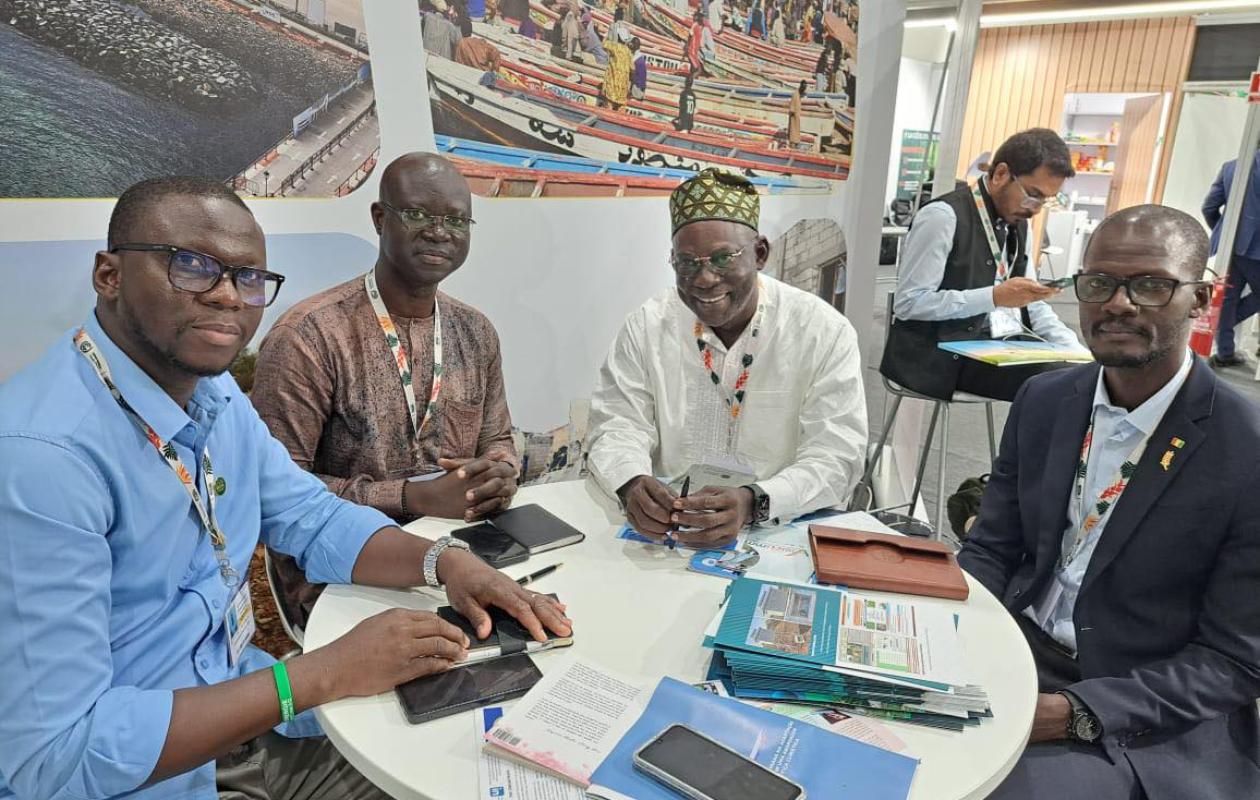
COP-30 : L’ONAS et ENDA visent à inverser les émissions du méthane à partir des ouvrages d’assainissement
A convergence of views has emerged between the National Sanitation Office of Senegal (ONAS) and Enda Energie. Both parties have committed to exploring ways to mitigate greenhouse gas emissions, focusing on methane, which is 28 times more potent as a greenhouse gas than carbon dioxide (CO2). During a B2B meeting between the Director General of ONAS and the Executive Director of Enda Energie, the two entities sealed a pact against greenhouse gas emissions, pending the formalization of a formal agreement.
“We believe that every opportunity should be seized. When we are in the country, we are so busy that we have no time to dedicate to anything. For us, energy is at the beginning and the end. If there are greenhouse gas emissions, it is because we are using fossil fuels. In order to reduce these emissions, we must move towards renewable energies,” explains the Executive Director of Enda Energie, Emmanuel Seck, who suggested that future projects should focus on reducing methane at certain ONAS facilities and also on taking another step in the reuse of treated wastewater.
This avenue is currently being explored. The Director General cited the fact that the Minister of Water and Sanitation's new vision aims to give substance to the nexus, a term currently in vogue in the sector. "Our policy is to add value to treated wastewater. We are seeking to work with partners to mobilize green financing, particularly to implement the nexus. We must be open to everyone," declared the Director General of ONAS, Séni Diène.
More than 1000 gigagrams of CO2 equivalent between 2019 and 2025
Within ONAS (National Sanitation Office), the shift towards decarbonization is becoming increasingly clear. A study reveals that liquid waste is the source of nearly 1,000 gigagrams of CO₂ equivalent emissions between 2019 and 2025. This trend must be reversed to help save the planet. But to do so, partners are needed. "If we don't change our treatment methods, the situation will worsen. Climate change is already exacerbating the floods we are experiencing," declared Abdoulaye Mallo Guèye, Head of the Wastewater Treatment and By-Product Development Department. ONAS, through the integration of cogeneration with the conversion of methane gas into energy to power some of its infrastructure, is already reducing greenhouse gas emissions. Two projects exemplify this transformation: the Cambérène Plant Modernization and Expansion Project and the Hann Bay Pollution Control Project.
“We have the project to modernize and extend the North City station in Dakar, which increases from 19,000 to 92,000 m³ per day with a biogas system, and the Petit Mbao wastewater treatment plant as part of the Hann Bay Pollution Control Project. The objective is twofold: to significantly reduce emissions and promote the circular economy by reusing by-products, particularly treated water for agriculture in the off-season,” says Abdoulaye Mallo Guèye.
Commentaires (4)
Prions pour lui chaque jour. IL disait "ENDA n'est pas une vache laitière, vous devez faire un pas et Enda fait un pas ET ON AVANCE ENSEMBLE" secteur RAIL. Bon courage pour la poursuite de sa vision. Ses conseils et sa présence me manquent. Je ne cesse de penser à ce GRAND HOMME qui à beaucoup donné à l'AOF et particulièrement au SENEGAL avec l'appuis de l'AFD.
merci JACQUES REPOSE EN PAIX😭
Tous pour les boys towns de Dakar et la misére pour les autres qui sont obligés de venir augmenter la pollution qui vous voulez combattre.Allez au Fouta,dans le ferlo,le fouladou qui ont ete exclus,marginalisés,stigmatisé par l’etat,les boys town,ses chefs,directeur d’ONG ne pensent,n’agissent k pour Dakar suceur d’impots.Toutes les infrastructures,administratives (universités,hopitaux,…)sont sur l’axe cotiére saint Louis alà ziguinchor..Les boys town ont depuis les independences abusés les ruraux et se sont servis le plus aux opportunités etatiques.
Aussi on n peut pas parler de souveraineté et venir nous parler de partenaires,d’investisseurs etrangers.Faut choisir entre une ouverture vers le monde ou une fermiture,une isolation.
Merde aux boys town.
Participer à la Discussion
Règles de la communauté :
💡 Astuce : Utilisez des emojis depuis votre téléphone ou le module emoji ci-dessous. Cliquez sur GIF pour ajouter un GIF animé. Collez un lien X/Twitter ou TikTok pour l'afficher automatiquement.